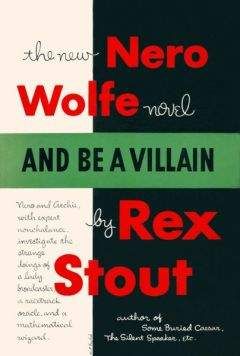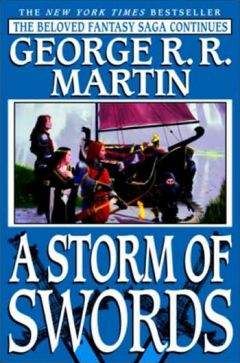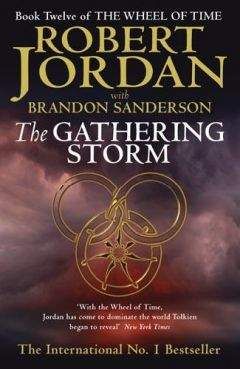So far the public had not been informed that Starlite gave Miss Fraser indigestion. If the papers had known that!
Wolfe wasn't lifting a finger. It was not, properly speaking, a relapse. Relapse is my word for it when he gets so offended or disgusted by something about a case, or so appalled by the kind or amount of work it is going to take to solve it, that he decides to pretend he has never heard of it, and rejects it as a topic of conversation. This wasn't like that. He just didn't intend to work unless he had to. He was perfectly willing to read the pieces in the papers, or to put down his book and listen when I returned from one of my visits to Homicide. But if I tried to badger him into some mild exertion like hiring Saul and Fred and Orrie to look under some stones, or even thinking up a little errand for me, he merely picked up his book again.
If any of the developments, such as they were, meant anything to him, he gave no sign of it. Elinor Vance was arrested, held as a material witness, and after two days released on bail. The word I brought from Homicide was that there was nothing to it except that she had by far the best opportunity to put something in the coffee, with the exception of the cook. Not that there weren't plenty of others; the list had been considerably lengthened by the discovery that the coffee had been made, bottled, and kept overnight in Miss Eraser's apartment, with all the coming and going there.
Then there was the motive-collecting operation. In a murder case you can always get some motives together, but the trouble is you can never be sure which ones are sunfast for the people concerned. It all depends. There was the guy in Brooklyn a few years ago who stabbed a dentist in and around the heart eleven times because he had pulled the wrong tooth. In this case the motive assortment was about average, nothing outstanding but fairly good specimens. Six months ago Miss Fraser and Bill Meadows had had a first-class row, and she had fired him and he had been off the programme for three weeks. They both claimed that they now dearly loved each other.
Not long ago Nat Traub had tried to persuade a soup manufacturer, one of the Fraser sponsors, to leave her and sign up for an evening comedy show, and Miss Fraser had retaliated by talking the sponsor into switching to another agency.
Not only that, there were vague hints that Miss Fraser had started a campaign for a similar switch by other sponsors, including Starlite, but they couldn't be nailed down. Again, she and Traub insisted that they were awful good friends.
The Radio Writers' Guild should have been delighted to poison Miss Fraser on account of her tough attitude toward demands of the Guild for changes in contracts, and Elinor Vance was a member of the Guild in good standing. As for Tully Strong, Miss Fraser had opposed the formation of a Sponsors' Council, and still didn't like it, and of course if there were no Council there would be no secretary.
And so on. As motives go, worth tacking up but not spectacular. The one that would probably have got the popular vote was Deborah Koppel's. Somebody in the DAs office had induced Miss Fraser to reveal the contents of her will. It left ten grand each to a niece and nephew, children of her sister who lived in Michigan, and all the rest to Deborah. It would be a very decent chunk, somewhere in six figures, with the first figure either a 2 or a 3, certainly worth a little investment in poison for anyone whose mind ran in that direction.
There was, however, not the slightest indication that Deborah's mind did. She and Miss Fraser, then Miss Oxhall, had been girlhood friends in Michigan, had taught at the same school, and had become sisters-in-law when Madeline had married Deborah's brother Lawrence.
Speaking of Lawrence, his death had of course been looked into again, chiefly on account of the coincidence of the cyanide. He had been a photographer and therefore, when needing cyanide, all he had to do was reach to a shelf for it.
What if he hadn't killed himself after all? Or what if, even if he had, someone thought he hadn't, believed it was his wife who had needed the cyanide in order to collect five thousand dollars in insurance money, and had now arranged, after six years, to even up by giving Miss Fraser a dose of it herself?
Naturally the best candidate for that was Deborah Koppel. But they couldn't find one measly scrap to start a foundation with. There wasn't the slightest evidence, ancient or recent, that Deborah and Madeline had ever been anything but devoted friends, bound together by mutual interest, respect and affection.
Not only that, the Michigan people refused to bat an eye at the suggestion that Lawrence Koppel's death had not been suicide. He had been a neurotic hypochondriac, and the letter he had sent to his best friend, a local lawyer, had clinched it. Michigan had been perfectly willing to answer New York's questions, but for themselves they weren't interested.
Another of the thousand lines that petered out into nothing was the effort to link up one of the staff, especially Elinor Vance, with Michigan. They had tried it before with Cyril Orchard, and now they tried it with the others. No soap.
None of them had ever been there.
Wolfe, as I say, read some of this in the papers, and courteously listened to the rest of it, and much more, from me. He was not, however, permitted to limit himself strictly to the role of spectator. Cramer came to our office twice during that week, and Anderson, the Starlite president, once; and there were others.
There was Tully Strong, who arrived Saturday afternoon, after a six-hour session with Cramer and an assortment of his trained men. He had probably been pecked at a good deal, as all of them had, since they had told the cops a string of barefaced lies, and he was not in good humour. He was so sore that when he put his hands on Wolfe's desk and leaned over at him to make some remarks about treachery, and his spectacles slipped forward nearly to the tip of his nose, he didn't bother to push them back in place.
His theory was that the agreement with Wolfe was null and void because Wolfe had violated it. Whatever happened, Wolfe not only would not collect his fee, he would not even be reimbursed for expenses. Moreover, he would be sued for damages. His disclosure of a fact which, if made public, would inflict great injury on Miss Fraser and her programme, the network, and Starlite, was irresponsible and inexcusable, and certainly actionable.
Wolfe told him bosh, he had not violated the agreement.
No?” Strong straightened up. His necktie was to one side and his hair needed a comb and brush. His hand went up to his spectacles, which were barely hanging on, but instead of pushing them back he removed them. “You think not? You'll see. And, besides, you have put Miss Eraser's life in danger! I was trying to protect her! We all were!”
“All?” Wolfe objected. “Not all. All but one.”
“Yes, all!” Strong had come there to be mad and would have no interference. “No one knew, no one but us, that it was meant for her! Now everybody knows it! Who can protect her now? I'll try, we all will, but what chance have we got?”
It seemed to me he was getting illogical. The only threat to Miss Fraser, as far as we knew, came from the guy who had performed on the coffee, and surely we hadn't told him anything he didn't already know.
I had to usher Tully Strong to the door and out. If he had been capable of calming down enough to be seated for a talk I would have been all for it, but he was really upset. When Wolfe told me to put him out I couldn't conscientiously object. At that he had spunk. Anybody could have told from one glance at us that if I was forced to deal with him physically I would have had to decide what to do with my other hand, in case I wanted to be fully occupied, but when I took hold of his arm he jerked loose and then turned on me as if stretching me out would be pie. He had his specs in one hand, too. I succeeded in herding him out without either of us getting hurt.
As was to be expected, Tully Strong wasn't the only one who had the notion that Wolfe had committed treason by giving their fatal secret to the cops. They all let us know it, too, either by phone or in person. Nat Traub's attitude was specially bitter, probably because of the item that had been volunteered by Bill Meadows, that Traub had served the bottle and glass to Orchard, drainer's crew must have really liked that one, and I could imagine the different keys they used playing it for Traub to hear. One thing I preferred not to imagine was what we would have got from Mr Walter B. Anderson, the Starlite president, and Fred Owen, the director of public relations, if anyone had told them the full extent of Wolfe's treachery. Apparently they were still ignorant about the true and horrible reason why one of the bottles had contained coffee instead of The Drink You Dream Of.
Another caller, this one Monday afternoon, was the formula hound, Professor Savarese. He too came to the office straight from a long conference with the cops, and he too was good and mad, but for a different reason. The cops had no longer been interested in his association with Cyril Orchard, or in anything about Orchard at all, and he wanted to know why. They had refused to tell him.
They had reviewed his whole life, from birth to date, all over again, but with an entirely different approach. It was plain that what they were after now was a link between him and Miss Fraser. Why? What new factor had entered? The intrusion of a hitherto unknown and unsuspected factor would raise hell with his calculation of probabilities, but if there was one he had to have it, and quick.
This was the first good chance he had ever had to test his formulas on the most dramatic of all problems, a murder case, from the inside, and he wasn't going to tolerate any blank spaces without a fight.
What was the new factor? Why was it now a vital question whether he had had any previous association, direct or indirects with Miss Fraser?
Up to a point Wolfe listened to him without coming to a boil, but he finally got annoyed enough to call on me again to do some more ushering. I obeyed in a half-hearted way. For one thing, Wolfe was passing up another chance to do a dime's worth of work himself, with Savarese right here and more than ready to talk, and for another, I was resisting a temptation. The question had popped into my head, how would this figure wizard go about getting Miss Eraser's indigestion into a mathematical equation? It might not be instructive to get him to answer it, but at least it would pass the time, and it would help as much in solving the case as anything Wolfe was doing. But, not wanting to get us any more deeply involved in treachery than we already were, I skipped it.
I ushered him out.
Anyhow, that was only Monday. By the time four more days had passed and another Friday arrived, finishing a full week since we had supplied Cramer with a fact, I was a promising prospect for a strait jacket. That evening, as I returned to the office with Wolfe after an unusually good dinner which I had not enjoyed, the outlook for the next three or four hours revolted me. As he got himself adjusted comfortably in his chair and reached for his book, I announced: “I'm going to my club.”
He nodded, and got his book open.
“You do not even,” I said cuttingly, “ask me which club, though you know damn' well I don't belong to any. I am thoroughly fed up with sitting here day after day and night after night, waiting for the moment when the idea will somehow seep into you that a detective is supposed to detect. You are simply too goddam lazy to live. You think you're a genius. Say you are. If in order to be a genius myself I had to be as self-satisfied, as overweight, and as inert as you are, I like me better this way.”



